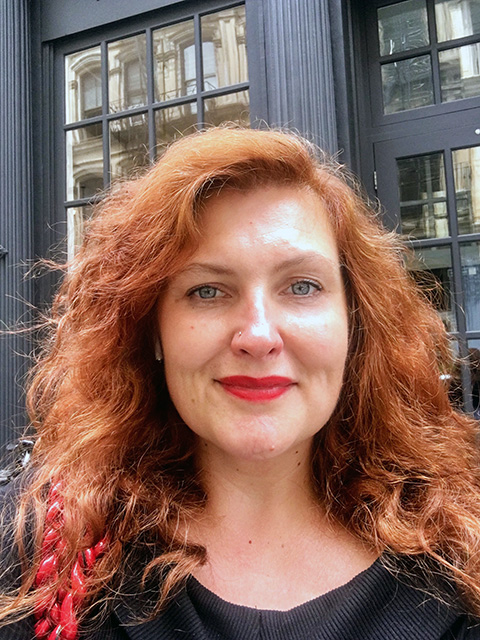Mission
Vision
Project Highlights

Insight. Passion. Culture. Research.
Mission
Vision
Project Highlights
Living with Long COVID
Many hospitals now offer post-Covid clinics or recovery programs, which bring together doctors with experience treating long Covid patients. Given the number of patients, some doctors and programs have long waits for appointments. It can help to plan ahead and try multiple options.
— Survivor Corps keeps a directory of post-Covid clinics.
— Dysautonomia International offers a list of doctors with experience treating autonomic disorders commonly seen in long Covid.
— Body Politic hosts a Covid support group where thousands of long haulers share information and advice on Slack.
— The Long Covid Support Group hosts a community on Facebook.
— The Royal College of Occupational Therapists offers advice for managing post-Covid fatigue.
— An essay from Maria Farrell offers advice on how to get well, and the importance of making time to rest.
— ME Action, a group supporting people with ME/CFS, offers advice to long Covid patients on how to manage symptoms.
— Americans with long Covid may qualify for disability benefits, although without conclusive medical results, many people face roadblocks.
— Three leading researchers into long Covid often share information about the latest findings on Twitter: Dr. Amy Proal, a microbiologist at PolyBio Research Institute; Dr. David Putrino, the director of rehabilitation innovation for the Mount Sinai Health System; and Dr. Iwasaki, the Yale immunologist.
— Health Rising covers the latest research into long Covid, ME/CFS and other chronic illnesses in detail.
— Gez Medinger, a video producer, interviews some prominent researchers into long Covid on YouTube.
— A video interview with Dr. Svetlana Blitshteyn, a neurologist and the director of the Dysautonomia Clinic, offers advice for treatment and an overview of current research into autonomic disorders.
— A detailed guide to understanding, treating and living with orthostatic intolerance is available from the Johns Hopkins Children’s Center.
The Times has written extensively about long Covid, including:
— One patient’s painstaking path through long Covid rehab.
— A profile of children who struggle with long Covid.
— The worsening of long Covid symptoms after exercise.
— The four factors that may increase the chances for long Covid.
We have conducted health and educational disparities research for more than three decades among minority populations. We began with research that aimed to understand the cultural, historical, biological, and political economic factors that contributed to the HIV/AIDS pandemic in southern Africa. We found multiple layers of complexity, including lingering effects of colonialism and colonization, ethnocide and genocide, genetic vulnerabilities, pathogen mutations, inequitable resource extraction by powerful empires and corporations, income and wealth inequalities, a general absence of cultural humility among organizations and groups who were seeking to help, including ill-advised (though well-meaning) interventions from Western government and mission-based organizations, and many other issues that made southern Africa “fertile soil” for the pandemic.
We determined to pursue more education, training, and additional research so that we would not contribute to the harms we had witnessed. This led to our research expanding to include American Indians/Native Peoples, Blacks/African Americans, aging populations, and sexual minorities.
Based on insights from years of fieldwork, in-depth studies, and reflection, we found two basic principles that now guide our work:
In addition to four decades’ experience in business management, Derrell Cox, PhD has twenty years’ experience in translational research, including in sexual and reproductive health, aging and the dementias, gut microbiome, food environment and sovereignty, childhood development, and infectious disease prevention…all within historically marginalized and minority populations in southern Africa, South Dakota, California, and Oklahoma, including among multiple American Indian Tribes.
Dr. Cox’s interest in health and medicine began with his first part-time job as a janitor for Anderson Clinic in Jenks, Oklahoma. After several years in the general contracting business, in 2001-2002, he paused the construction business in Oklahoma in order to transition into culturally-informed health research. At that time, HIV/AIDS was devastating southern Africa and his assignment was to listen to, learn from, and collaborate with local people to implement HIV prevention strategies. Together with his young family, he chose to live and work in Botswana, the epicenter of the pandemic, even as others were leaving, discouraged by the inextricable, intractable, and seemingly insurmountable complexities that HIV presented. After working in southern Africa during the peak of the HIV/AIDS pandemic, he decided that he needed more education.
While there have been many gains in HIV prevention and treatment over the past two decades, most of these complexities that make people vulnerable to HIV/AIDS (and other diseases) remain intact. Medical researchers have developed therapeutics and antivirals to render HIV as merely a chronic, but treatable condition. However, as with malaria, tuberculosis, and now COVID-19, the most difficult barriers to prevention and treatment of emerging infectious diseases are political and economic, rather than medical or scientific.
We already have the medical and scientific knowledge that would allow us to eradicate, or reduce to negligible amounts, most of the diseases that harm us today. What is lacking in many cases is equity and empathy for others who do not look like us or who come from different cultural or religious backgrounds.
Equity—in government and corporate policies, access to services, employment, education, and other areas—empowers every person to envision and obtain their needs for health and wellbeing.
Empathy allows us to experience others’ pain, grief, adversities, and systemic disadvantages as if they are our own. It motivates us to act in ways that are compassionate, caring, and courageous–traits necessary to take bold steps collectively that are needed to muster the political will in our communities and nations to address the inequalities of power and access to resources that underpin lingering preventable diseases and health disparities. Researching ways to cultivate empathy and reduce disparities are central to our mission, research, and outreach efforts at Integrated Research Institute.
Lori Sims-Cox has more than a two decades of research and educational experience in improving educational outcomes in under-served and minority communities in New York City, Arkansas, and Oklahoma. Her backgrounds in mathematics, chemical engineering, marketing, policy-making, and educational design brings a rich integration of several academic disciplines. She has more than 17 years’ experience in education, research, successful grant-writing, and managing federally-funded research and training.

Narae Kim, PhD received her Ph.D. (Mass Communication) in 2019 from the Gaylord College of Journalism and Mass Communication at the University of Oklahoma. Dr. Kim’s research foci include ways to effectively design health messaging within under-served populations to prevent and reduce substance and problematic online gaming ab/use, bring greater awareness of COVID-19 risks and risk-reduction measures, and reduce COVID-19 vaccine hesitancy. Dr. Kim studies and applies evidence-based practices to assess participants’ cognitive and emotional health message processing and media technology in health communications. She collaborates with us to create culturally appropriate and aesthetically engaging health outreach to American Indian Tribal populations by reflecting the primary health issues of concern among the populations.

Please email us at info@integratedresearch.org, if you have any general questions or requests about our services.
We will try our best to respond within 24 hours.
Mastodon @iri@mastodon.scot